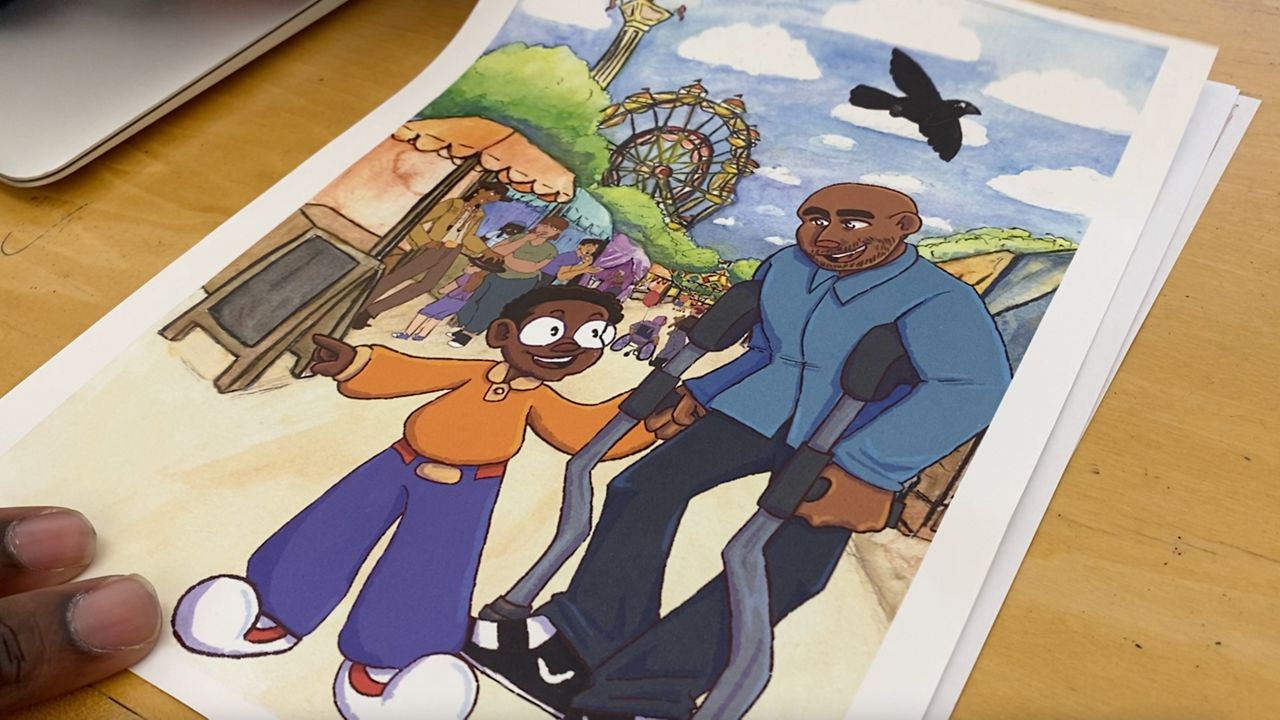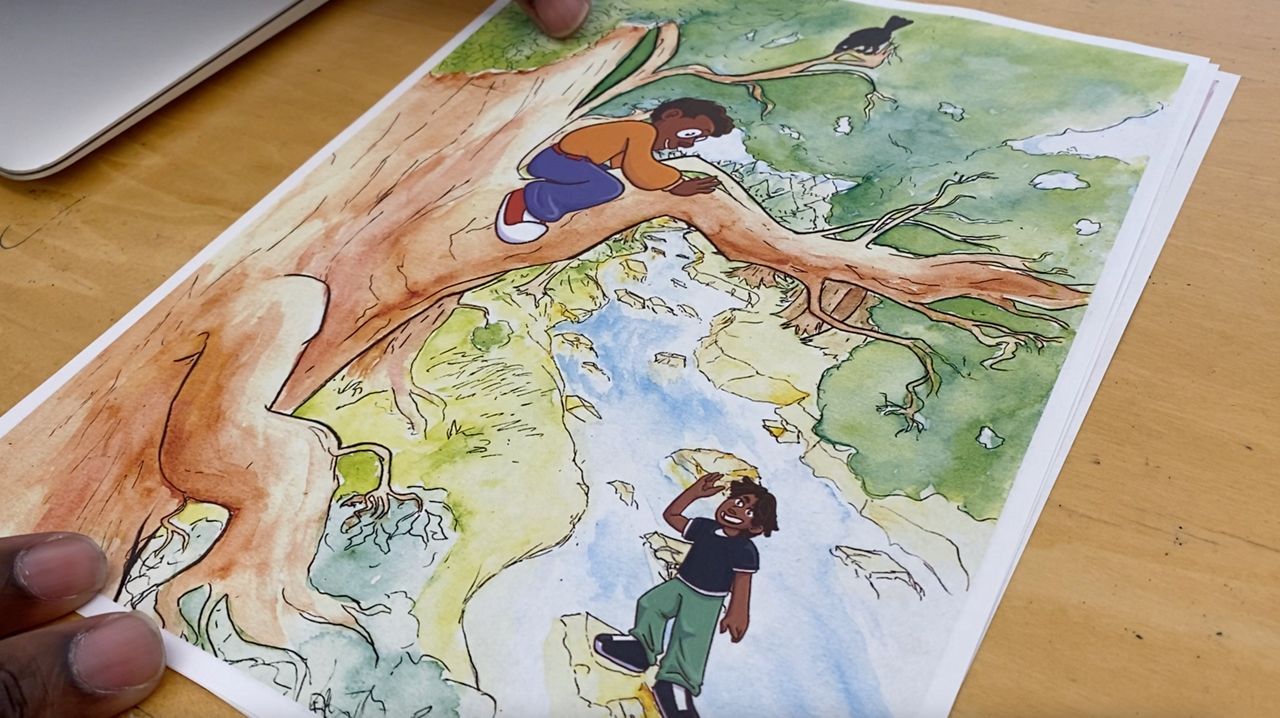RALEIGH, N.C. — A Triangle man is writing a new children’s book to help facilitate conversations about mental health with kids.
September is Suicide Prevention Month and the Centers for Disease Control and Prevention says suicide is the second leading cause of death for young adults ages 10 to 24. But there are resources to help people who are struggling.
Tevarius Felton, an adjunct professor, says picture books often teach kids valuable lessons and the characters can feel like best friends.
“It’s more than just reading. It’s like putting yourself in their shoes,” Felton said. “I remember growing up, I would always be looking at Arthur or Franklin, and I just envisioned myself with them.”
Felton kept that in mind when he decided to write a children’s book, called “Teebee Adventures,” centered around a character named Teebee.
The book will feature many of Teebee’s friends and family members as they explore nature, including many popular North Carolina locations, and learn about mental health.
One of the sections of the book reads, “He decided to lie down and meditate because he knew that if he stayed scared, he wouldn’t be able to think clearly. Meditation always helped Teebee when he felt anxious or nervous. He began taking deep breaths in through his nose and out of his mouth.”

An illustration in Tavarius Felton’s book. (Spectrum News 1/Kyleigh Panetta)
“We have a stigma around mental health that sometimes kids don’t really need to talk about it, you know, like they’re just playing,” Felton said.
Therapist Baseer Maroof says recent data shows just how important it is to prioritize mental health, especially while you’re young.
“The thing that stands out to me the most is the fact that suicide is the second leading cause of death amongst youth,” Maroof said. “Of course, it’s great to learn about mental health. As you live life, you want to learn about it. We’re all learning about it now. But imagine a future where kids were taught from an early age about mindfulness, about emotional regulation.”
Maroof says one way to change that statistic is by teaching and talking to kids about emotions at a young age, creating a solid foundation.
“To develop coping skills, the vocabulary of how to talk about what you’re experiencing within yourself and learning techniques on how to manage stress,” Maroof said. “Normalize getting help, normalize talking about things, having the verbiage to talk about things. Sometimes, especially children, it’s hard to even identify what they’re feeling. So just understanding what different emotions even exist, I think is hugely important.”
Felton, who struggled with mental health during grad school, says sometimes people don’t learn about those skills early enough.
“A lot of times people find out about therapy, as I did, when they’re 20, 21, 22, and then you’re like, ‘Wow, I didn’t understand any of this,’” Felton said.

An illustration in Tavarius Felton’s book. (Spectrum News 1/Kyleigh Panetta)
He hopes his book, which may end up on library shelves one day, can help change that and maybe even show others they can also make a positive impact.
“Not everybody is privileged to have that, and so now they would be able to have at least one source. And hopefully when more people see this, they’ll create their own sources and we have a bigger and more elaborate group of books like this,” Felton said.
Maroof also says mental health should not be a taboo subject. The more we talk about it, the less people feel like they’re alone.
Felton is currently fundraising for his book. He also says publishers are looking at his book and he hopes to get it printed in the coming months.
If you or someone you know is struggling, there is help. The number for the Suicide and Crisis Lifeline is 988 and it’s available 24 hours a day, 7 days a week.
The Kickstarter.com site is not managed by Spectrum News 1. For more information on how the site works and the rules visit https://www.kickstarter.com/rules.



